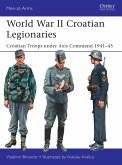The thirst for post-World War II justice transcended the Cold War and mobilized diverse social groups. This is a story of their multilayered and at times conflictual interactions.
In this edited collection, sixteen historians develop a new approach to the trials against persons accused of war crimes and mass murder in Europe during the ascendancy of Nazism and the Second World War (1933-1945). Focusing on the social aspects of the demand for justice and making use of previously underexploited local and international sources, contributors put to the test the notion of "show trials" and explore a range of judicial and political cultures from Germany to the Soviet Union.
Essays uncover the expectations around accountability and forms of mobilization on the part of a range of citizens involved in the trials: survivors, witnesses, perpetrators, Nazi hunters, and civic activists. In addition to the perspective of these citizens, contributors invoke the expertise of reporters, filmmakers, historians, investigators, and prosecutors who shaped public representations of justice. These shaping efforts, the authors show, often supported the desire of political authorities to benefit from the publicity of the trials and to contain the spontaneous dissemination of information. The book's close examination of interactions between citizens and authorities thus demonstrates the extent and limits of what might be called a "coproduction" of justice, in the process shedding light on the interdependence between historical knowledge and legal prosecution of mass crimes.
In this edited collection, sixteen historians develop a new approach to the trials against persons accused of war crimes and mass murder in Europe during the ascendancy of Nazism and the Second World War (1933-1945). Focusing on the social aspects of the demand for justice and making use of previously underexploited local and international sources, contributors put to the test the notion of "show trials" and explore a range of judicial and political cultures from Germany to the Soviet Union.
Essays uncover the expectations around accountability and forms of mobilization on the part of a range of citizens involved in the trials: survivors, witnesses, perpetrators, Nazi hunters, and civic activists. In addition to the perspective of these citizens, contributors invoke the expertise of reporters, filmmakers, historians, investigators, and prosecutors who shaped public representations of justice. These shaping efforts, the authors show, often supported the desire of political authorities to benefit from the publicity of the trials and to contain the spontaneous dissemination of information. The book's close examination of interactions between citizens and authorities thus demonstrates the extent and limits of what might be called a "coproduction" of justice, in the process shedding light on the interdependence between historical knowledge and legal prosecution of mass crimes.
Dieser Download kann aus rechtlichen Gründen nur mit Rechnungsadresse in A, D ausgeliefert werden.









